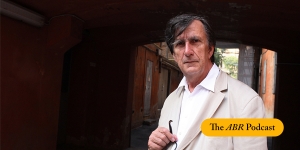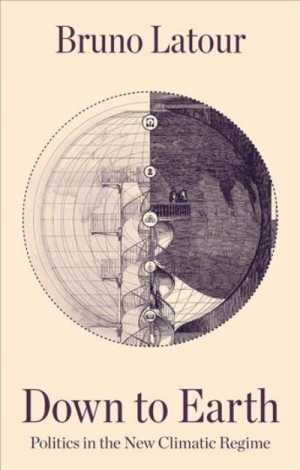Bruno Latour
The French philosopher and sociologist Bruno Latour is one of the world’s most iconoclastic thinkers, and has recently turned his attention to the relations between human activity and the natural world. In his new work After Lockdown: A metamorphosis, Latour takes pandemical lockdowns as a provocation for a ‘philosophical fable’, in which the return to normalcy allows for a transformative re-encounter with the Earth as a work millennia in the making. In today’s episode, listen to Paul Muldoon read his review of this genre-crossing work, a work of which even the ‘Brothers Grimm would be in awe’. Paul Muldoon is Senior Lecturer in Politics and International Relations at Monash University.
... (read more)Paul Muldoon reviews 'After Lockdown: A metamorphosis' by Bruno Latour, translated by Julie Rose
Bruno Latour’s new book, After Lockdown: A metamorphosis, is so engaging from the first that one feels obliged to begin just where he does: with an arresting portrait of a man who wakes from a long sleep to find that everything, save the moon and its indifferent rotations, makes him uneasy. Everywhere he sees reminders of the lost innocence of the Anthropocene. The sun brings to mind global warming; the trees, deforestation; the rain, drought. Nothing in the landscape offers solace. Pollution has left its mark everywhere, and he feels vaguely responsible for it all. And now, to top it off, the very breath that sustains his life carries the risk of premature death. How many of his neighbours might he infect (or be infected by) amid the vapour trails of his evening walk? Nature, it seems, is having its revenge, and the ‘in-out-in’ of lockdown threatens to become interminable.
... (read more)Tim Flannery reviews 'Down to Earth: Politics in the new climate regime' by Bruno Latour
Bruno Latour is one of the world’s leading sociologists and anthropologists. Based in France, he brings a refreshingly non-Anglophone approach to the big political problems of our times. At the heart of his latest book are the hypotheses that ‘we can understand nothing about the politics of the ...
... (read more)Kathrin Bartha reviews 'Facing Gaia: Eight lectures on the new climatic regime' by Bruno Latour, translated by Catherine Porter
Have you heard of the Anthropocene, the so-called Age of Humans? Our geological epoch has been renamed because human influences on Earth are so profound that not only is our climate changing, but so are our soils, water, and social order. Bruno Latour, prolific French philosopher and historian of science, dedicates his book ...
... (read more)



